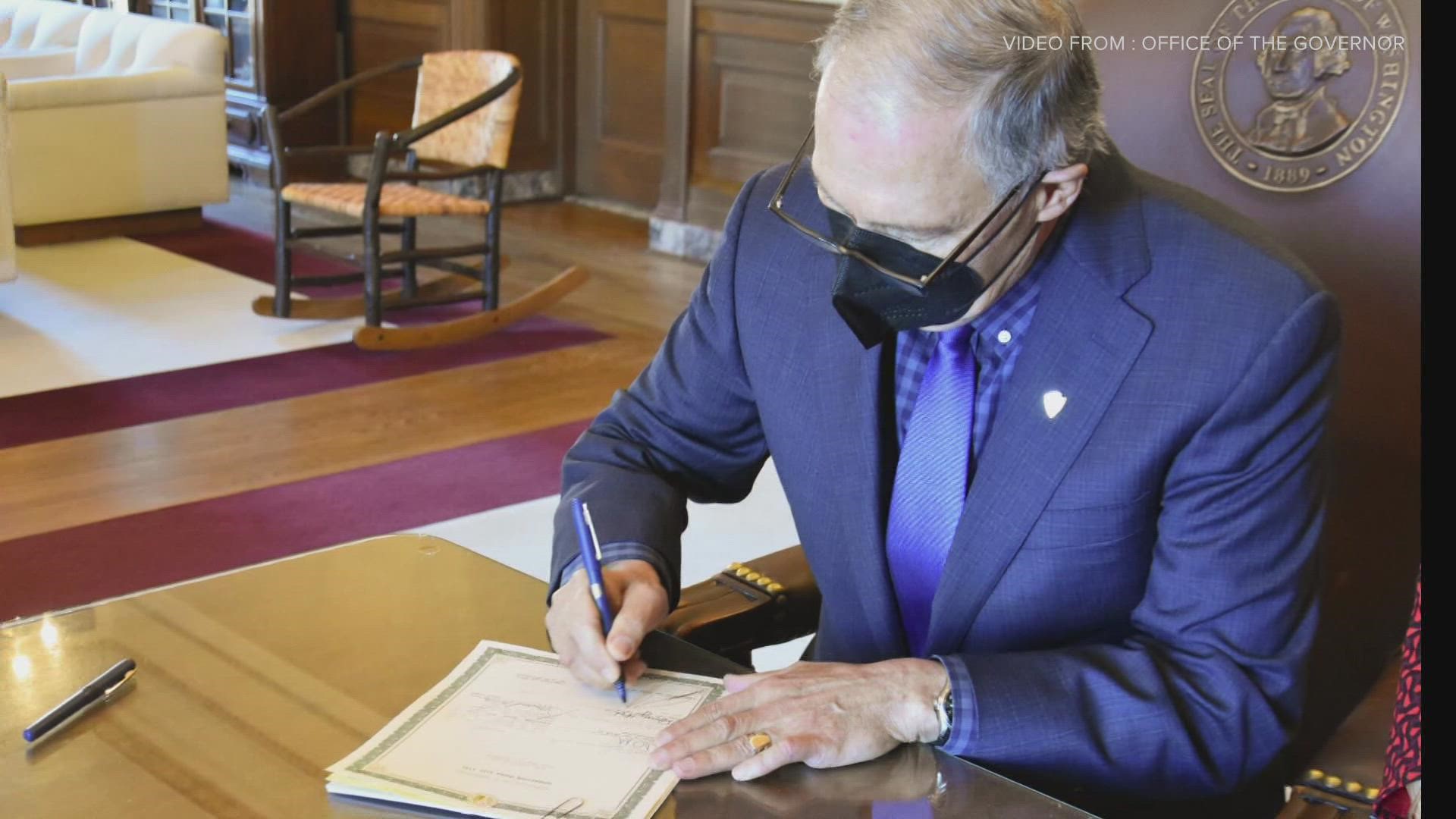OLYMPIA, Wash. — Washington Gov. Jay Inslee signed a bill to delay the state’s new long-term care payroll tax in order to address solvency concerns and other issues raised about the first-of-its-kind program.
The tax is now delayed until July 1, 2023.
The delay comes after lawmakers “identified some areas that need adjustments.” The tax was originally set to start this month, but Inslee previously directed the Washington Employment Security Department (ESD) not to collect premiums from employers before they were due in April.
Washington passed the long-term care tax in 2019.
When the tax goes into effect, people who work in Washington will pay 0.58% of their earnings into the Washington cares fund. Someone who earns $75,000 a year will pay about $435 into their account annually, according to ESD.
Taxpayers who have contributed to the fund for 10 years receive a $36,500 lifetime benefit to help pay for long-term care needs, like in-home care, nursing home care, hearing aids, trained support for caregivers, home-delivered meals, memory care, necessary home renovations and many other services, according to the WA Cares Fund website.
Though the Employment Security Department didn't start collecting long-term care premiums from employers, some employees may have seen that 0.58% taken out of their paycheck. That includes the state, which planned to hold collected funds in reserve pending lawmaker action.
Any money collected so far will be returned after the bill signing.
A separate bill, filed by Reps. Dave Paul (D-Oak Harbor) and Nicole Macri (D-Seattle) would allow people to voluntarily exempt themselves from paying into the tax. That includes veterans with a service-connected disability of 70% or higher, spouses or partners of active duty members, people who live outside of Washington state while working in the state and people working in the U.S. under a temporary, nonimmigrant work visa.

